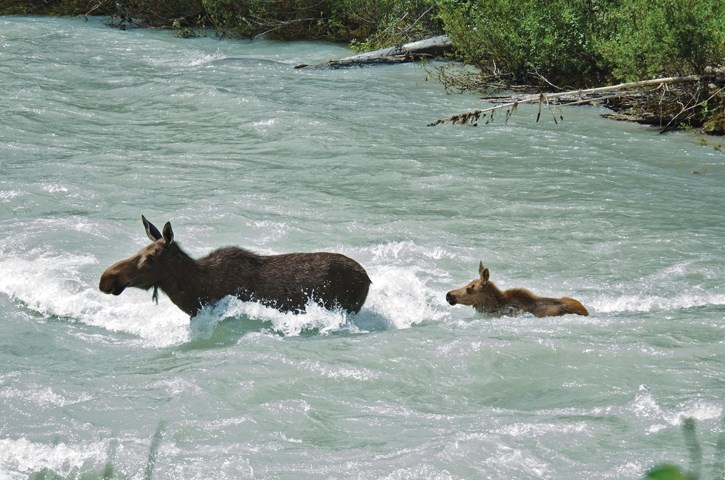Following successful events in Oregon and the Okanagan, the “Deciduous Heroes” tour wrapped up in Prince George on Wednesday, July 3 at 1299 3rd Ave.
Jen Côté of Moose, Mushrooms and Mud and local MLA and longtime trapper Mike Morris joined Stop the Spray B.C. founder James Steidle at 1299 3rd Ave. to talk about the value of deciduous trees sprayed with herbicides or suppressed with brush saws to grow conifer plantations.
“The tour has been a real opportunity to connect with different communities throughout the Pacific Northwest who are facing similar issues,” says Steidle. “The common denominator is that the industrialization of our forests and discrimination against our broad-leaved deciduous species is having real impacts on communities and wildlife values.”
Oregon and Washington State communities have seen heavy clearcutting and herbicide spraying of watersheds that provide communities with drinking water.
Rockaway Beach’s drinking watershed, Jetty Creek, is perhaps the best example of the worst practices. In the past 20 years, this small 1,340-acre watershed has been 90 per cent deforested and extensively sprayed with herbicides, which turned up in the town’s drinking water in 2013, he said.
The primary goal of spraying in Oregon and Washington is to kill red alder, a critical species for biodiversity that was recognized as a fire-break as long ago as 1917, said Steidle, who also writes a column for The Citizen.
He said Okanagan residents have not experienced the same level of herbicide spraying, but extensive clearcut logging has left a denuded landscape increasingly being converted into highly flammable and low-biodiversity pine plantations, an issue Peachland residents have been actively highlighting.
Forest companies continue to mechanically suppress fire-resistant aspen throughout the Okanagan.
Prince George regional forests have perhaps been the most extensively sprayed in the province. This has significantly reduced the amount of aspen, birch and cottonwood tree cover, which increases the risk of fire and reduces the wildlife carrying capacity of the forests, he said.
The extensive spraying and brushing of local deciduous forests has coincided with catastrophic declines in moose and high rates of apparent moose starvation. The primary habitat and food of moose is the deciduous forest type we spray and suppress, he said.
Reducing aspen tree cover also reduces cattle grazing, reduces soil moisture and nutrients, undermines hydrological function, reduces carbon sequestration and makes climate change worse, he said.
The event took place on the unceded lands of the Lheidli T’enneh and was blessed by local Lheidli T’enneh elder Victor Joseph.



